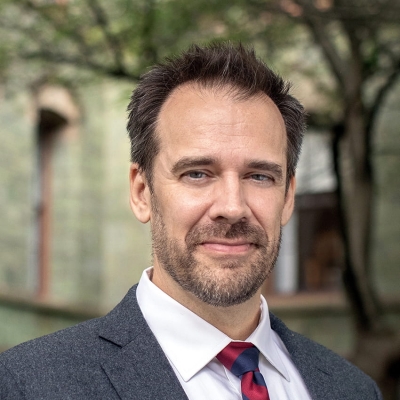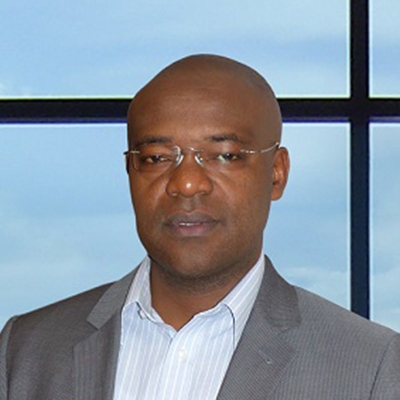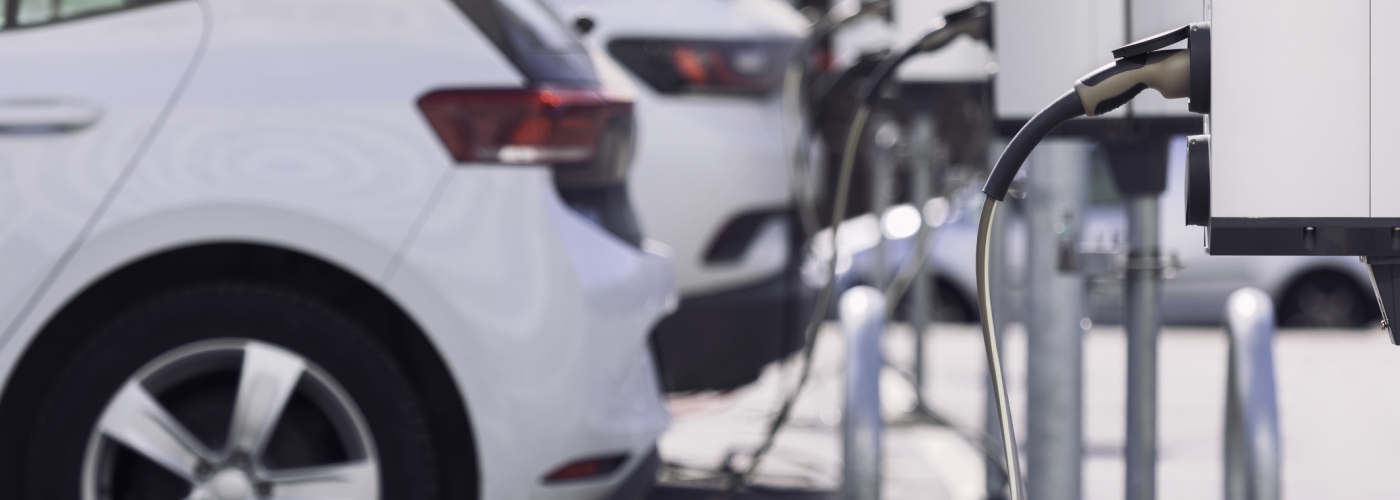Penn faculty will speak about their research on electric vehicles. Topic areas include:
- Challenges and progress towards sustainable sourcing of energy-critical metals in support of the renewable energy transition
- Mitigation and challenges related to battery materials for EVs, including the low energy density of batteries compared to fossil fuels, charging time, and the gradual failure of battery materials
- Overlooked operational and labor-related challenges impacting the pace of adoption of electric trucks
- Understanding and addressing the challenges and opportunities of self-driving trucks
- Policies critical to ensuring robust electrification in the freight industry
- Challenges and opportunities for using EVs to provide grid services
Note: This event is only open to the Penn Community. If you are interested in attending, please email: kleinmanenergy@upenn.edu.

Eric Schelter
Hirschmann-Makineni Professor of Chemistry
School of Arts and Sciences
Eric Schelter joined the faculty at the University of Pennsylvania in 2009 and is currently the Hirschmann-Makineni Professor of Chemistry. He earned his bachelor’s degree from Michigan Technology University, and his doctorate from Texas A&M University. He was a post-doctoral fellow at the Los Alamos National Laboratory. His research focuses on the chemistries and electronic structure effects of the transition metals, especially the lanthanides and actinides, with applications in catalysis, materials chemistry, and critical metals separations chemistry.

Eric Detsi
Associate Professor and Undergraduate Chair of Materials Science and Engineering
School of Engineering and Applied Science
Eric Detsi is associate Professor and Undergraduate Chair of Materials Science and Engineering. He received his B.Sc., M.Sc., and Ph.D. degrees in Applied Physics at the University of Groningen in the Netherlands. Before joining Penn, he conducted research at the Department of Chemistry at UCLA as a Dutch Science Foundation Rubicon Postdoctoral Fellow. His current research uses liquid metals and non-precious nanoporous materials such as nanoporous magnesium, aluminum, zinc, iron, lead, and antimony for electrochemical energy conversion and storage, with a focus on battery and hydrogen technologies.
Kelli Joseph
Senior Fellow
Kleinman Center for Energy Policy
Kelli Joseph works at the intersection of policy and markets, with a focus on transitioning the electricity sector to support a decarbonized, climate-resilient economy. She is an expert on electricity market design, electricity regulatory policy, utility rate design, power system economics, gas/electric system coordination, and climate policy. Previous work includes Grid and Market operations at the New York Independent System Operator (NYISO), the Energy and Extractives practice at the World Bank, market strategy across the U.S. organized wholesale power markets, and Kelli currently works in climate risk and renewable energy finance credit risk at a regional commercial bank. She participated in the DOE-funded NARUC-NASEO Task Force on 21st Century Electricity System Planning as an invited expert, served on the Board of Directors of several electricity industry associations and several industry start-ups, and is an invited participant in various forums dedicated to thinking about electricity market design challenges under deep decarbonization. Recent publications include: “Coordinating Markets for Reliability: Resource Adequacy as a Public Good” (The Electricity Journal) and “Market Structures and Resource Adequacy: Planning for the Energy Transition” (forthcoming World Resources Institute).
Joseph holds a Ph.D. in Political Economy from the University of Virginia, an M.A. in Sociology from the University of Virginia, and an MBA, with a concentration in Finance, from IE Business School in Spain, where she was a U.S. Fulbright Scholar.
Steve Viscelli
Lecturer, Department of Sociology
School of Arts and Sciences
Steve Viscelli is an economic and political sociologist. He is currently a lecturer in the Department of Sociology at the University of Pennsylvania, and a Robert and Penny Fox Family Pavilion Scholar. His research focuses on work, labor market economics, and economic regulation. In 2023, he was appointed to the Truck Leasing Task Force (TLTF) by Secretary of Transportation Buttigieg.
He has a recent book with the University of California Press entitled The Big Rig: Trucking and the Decline of the American Dream. In addition to his academic research, he works with a range of public and private stakeholders to make the trucking industry safer, more efficient, and a better place to work. In particular, Viscelli has worked with public and private organizations to develop new ways to move freight through urban areas to increase fuel efficiency and reduce the negative impacts of truck traffic. Viscelli was a visiting assistant professor at Swarthmore College and a senior associate at the Center on Wisconsin Strategy. He was also a National Science Foundation post-doctoral fellow in economic sociology at the University of Wisconsin.
Viscelli earned a Ph.D.in sociology from Indiana University, a M.A. in anthropology from Syracuse University, and a B.A. in philosophy from Colgate University.

